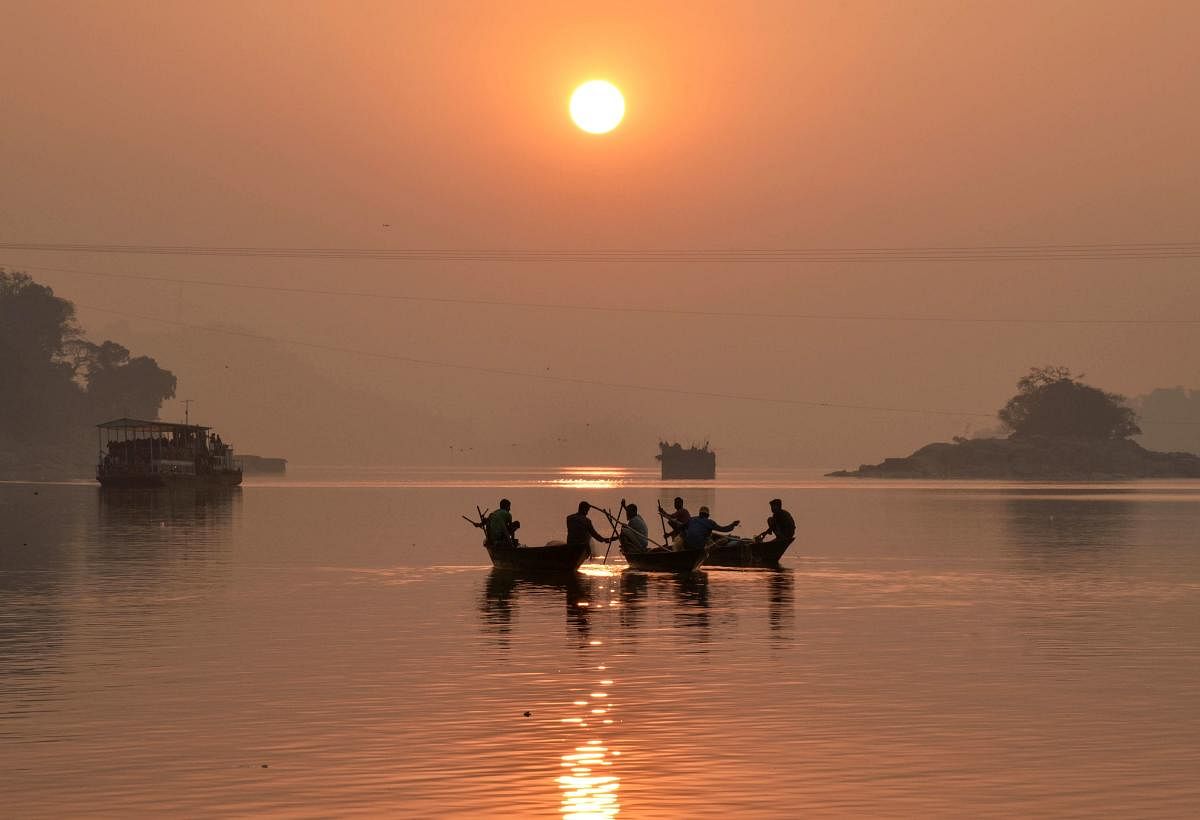
The Centre and Assam government signed a loan agreement worth $88 million with World Bank on Thursday for modernisation of the state's inland water transport system including those on the Brahmaputra and the Barak rivers.
With more than 361 ferry routes, inland water transport provides a crucial means of transport to thousands of commuters in both the urban and rural areas of the Brahmaputra Valley. The Assam Inland Water Transport Project (AIWTP) will help Assam improve the passenger ferry infrastructure and its services and strengthen the capacity of the institutions running the inland water transport. Technically better-designed terminals and energy-efficient vessels (both new and retrofitted) will make the ferry services more sustainable with least disruption to nature.
The project will support the Government of Assam’s efforts to corporatise its own ferry activities. The Assam Shipping Company (ASC) will operate the government ferries and the Assam Ports Company (APC) will provide terminals and terminal services on a common-user basis to both public and private ferry operators.
The loan agreement was signed by Sameer Kumar Khare, additional secretary, department of economic affairs, ministry of finance and Junaid Kamal Ahmad, country director (India), World Bank.
Assam has the largest network of navigable waterways in India. The Government of Assam has taken on the challenge of modernizing the ferries sector which, though vital to the state, remains largely informal. He further said that with World Bank support, the government is creating an institutional framework that will mainstream Inland Waterways as a mode of transport that is both attractive and well-suited to a wide cross-section of people living in the Brahmaputra Valley of Assam.
"Inland water transport is a more sustainable mode of transport. It provides low-carbon and low-cost options when compared to the cost of constructing and maintaining flood-resilient roads and bridges across the long stretches of the Brahmaputra river," said an official statement.
The project will also help build modern ferry terminals. In doing so, the project will draw guidance from ‘working with nature’ principles that aim to design new infrastructure or rehabilitate existing infrastructure in a way that works with natural river processes.
The loan of $88 million from the International Bank for Reconstruction and Development has a final maturity of 14.5 years including a grace period of five years, it said.